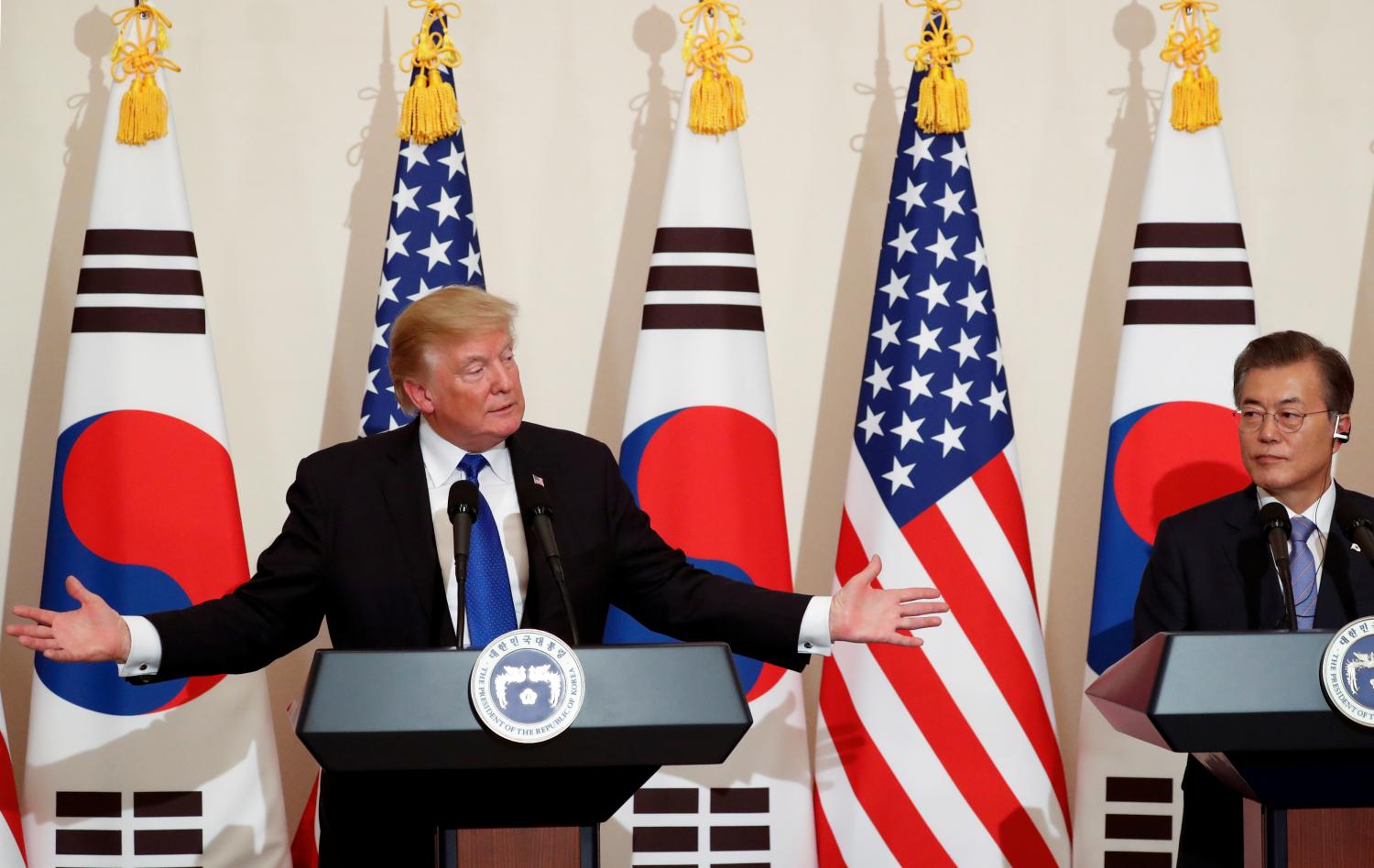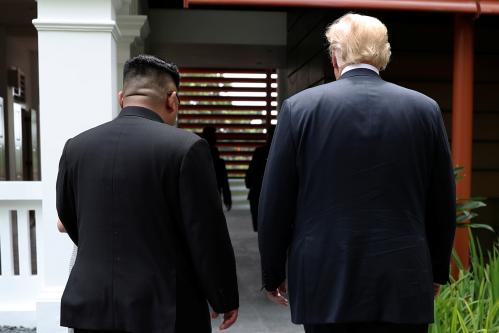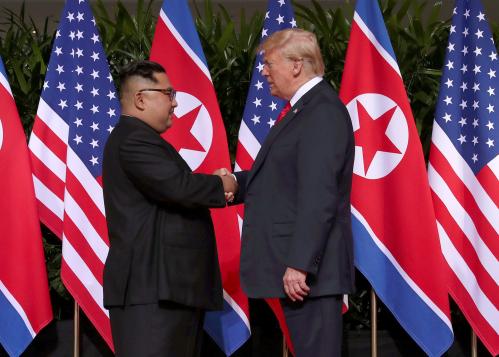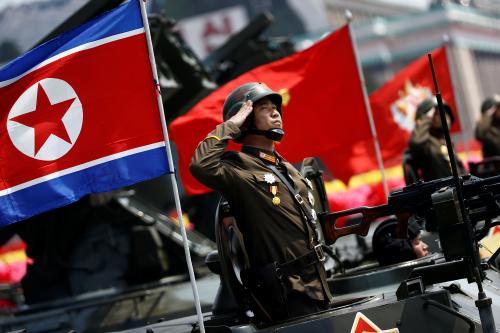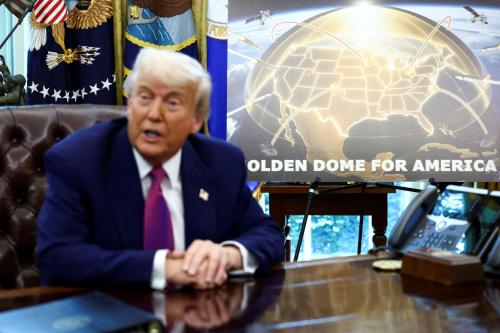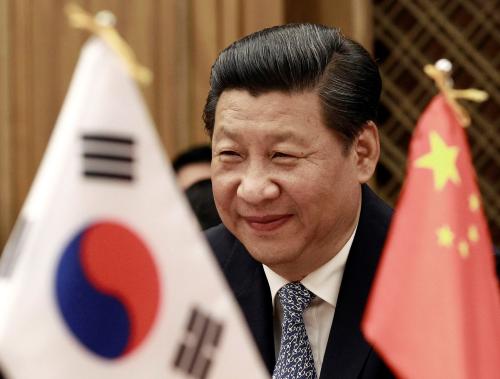This paper was presented at the 7th Brookings-Korea Research Institute for National Strategy (KRINS) joint conference, “Time for ‘Plan B’: The Denuclearization Illusion, the DPRK’s Strategic Game Plan, and the U.S.-ROK Alliance,” in Seoul on January 16, 2019.
Executive Summary
The United States has long sought to convince or compel North Korea to make a strategic decision about its nuclear weapons program. We now have that decision, but it is neither the one we had hoped for, nor is it the one President Trump has assured us that North Korean leader Kim Jong Un has made.
Direct dialogue with Kim and his inner circle, together with Pyongyang’s actions and rhetoric, tell us that North Korea intends to retain its nuclear capabilities, freeze nuclear and ballistic missile testing, and offer Washington only the distant prospect of denuclearization – a prospect never to be realized. The Pyongyang regime believes it can simultaneously keep its nuclear program, improve ties with Washington, assure the world that it will be a “responsible” nuclear power, remove the U.S. military “threat,” and end international sanctions.
Washington’s “Plan A” – engaging directly with the North Korean leader to convince him to denuclearize – has failed. It is now time to think about “Plan B.” For the United States failure to adjust course is bound to result in what several U.S. administrations have vowed never to allow: A permanently nuclear-armed North Korea.
The United States must review its assumptions and policy goals and take to heart what we have learned about Pyongyang’s intentions. Such a review will show that the DPRK strategic game plan now includes:
- Securing international acceptance of North Korea as a de facto nuclear weapons state;
- Gaining acceptance as a “normal” country and reliable dialogue partner (albeit a nuclear-armed one);
- Shifting the subject of dialogue with the United States from denuclearization and towards the DPRK’s preferred agenda: removing sanctions, ending the U.S. “threat,” and terminating the state of war on the Korean Peninsula in order to remove the rationale for the U.S. military presence in Korea;
- Creating the illusion that it is denuclearizing, while retaining its nuclear weapons; and,
- Driving a wedge between the United States and its ROK ally.
Today, there are troubling signs that Pyongyang is doubling down on its effort to split the U.S.-South Korea alliance. In his 2019 New Year’s address, Kim Jong Un all but demanded that Seoul dismantle the U.S.-ROK alliance or risk damaging North-South reconciliation.
Kim Jong Un’s assault on the U.S.-ROK relationship, his appeals to sympathetic elements in the South, South Korea’s preoccupation with reconciliation and reunification, and the enigmatic impulses of an American president who questions the value of the U.S.-ROK alliance are taking U.S.-South Korea relations into uncharted and dangerous waters.
The Brookings Institution is committed to quality, independence, and impact.
We are supported by a diverse array of funders. In line with our values and policies, each Brookings publication represents the sole views of its author(s).

